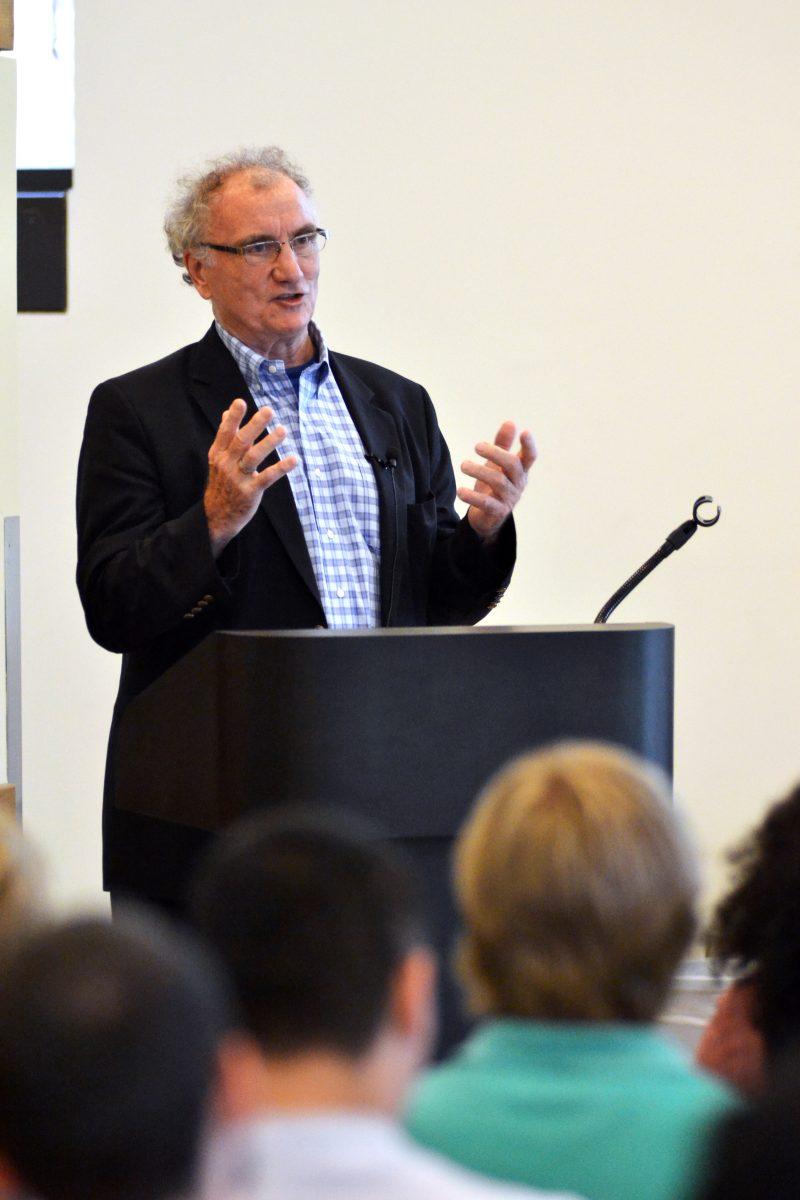Walt Wolfram, the William C. Friday distinguished university professor, spoke Thursday evening at the Caldwell Lounge about language diversity and its effects in society as the inaugural lecturer in the CHASS Teaching About Diversity lecture series.
Wolfram is a leader and bountiful author in the field of sociolinguistics. He has authored over twenty different books, three hundred articles, ten documentaries and the first state-based curriculum in the country on the subject of language diversity. These accomplishments paved the way to his positions as president of the Linguistic Society of America and the American Dialect Society.
Within his lecture, Wolfram described the origins and variety of complexity which pervades vernacular dialects, as well as the effects which such speech entails. According to Wolfram, the diversity of language is as widespread as the discrimination which accompanies different dialects. The importance of diversity is therefore not hard to see. “Social linguistics is everywhere,” said Wolfram.
He moved on to point out the dichotomy between the view that there is a standard way of communication in English and the view that rigid enforcement of formalized grammatical rules is racist and oppressive. Whether or not you agree with either of these views, one thing is clear: discrimination on the basis of dialect is found everywhere.
With regard to the effects of linguistic diversity, Wolfram said, “Attitudes and behavior are neither concurrent nor trivial and have immense implications in both academics and society.” Whether a potential employee trying to get a new job or a student is trying to ask a question in class, one may have to consider the way people will perceive him or her.
According to Wolfram, the idea that certain means of communication are inferior to others is a myth that often leads to linguistic profiling, which “the commonality of is staggering.” Wolfram moved on to point out that other “commonsense notions really shouldn’t be trusted” about patterns in communication.
Two of the myths discussed were that dialects are not ill-favored forms of standard English, and that there is little reason to learn about diversity of language apart from innate curiosity. Dialects contain complex grammatical rules which are based in the structure of the English language. “Is not against the rationale of teaching standard English,” said Wolfram. Rather, he finds it necessary to incorporate the subject of dialect diversity into the curriculum.
On the point that language diversity is not vitally important, Wolfram said, “There are significant linguistic, scientific and historical reasons to study language diversity.” These developments on how language evolved, the effects of language barriers and how it relates to human psychology and sociology, are critically important to understanding human and cultural development.
Wolfram’s presentation was well received. Mary Wyer, associate professor of Psychology in the Public Interest, said, “I think seeing his talk was a fascinating opportunity that made visible to me issues that I had never considered.”








